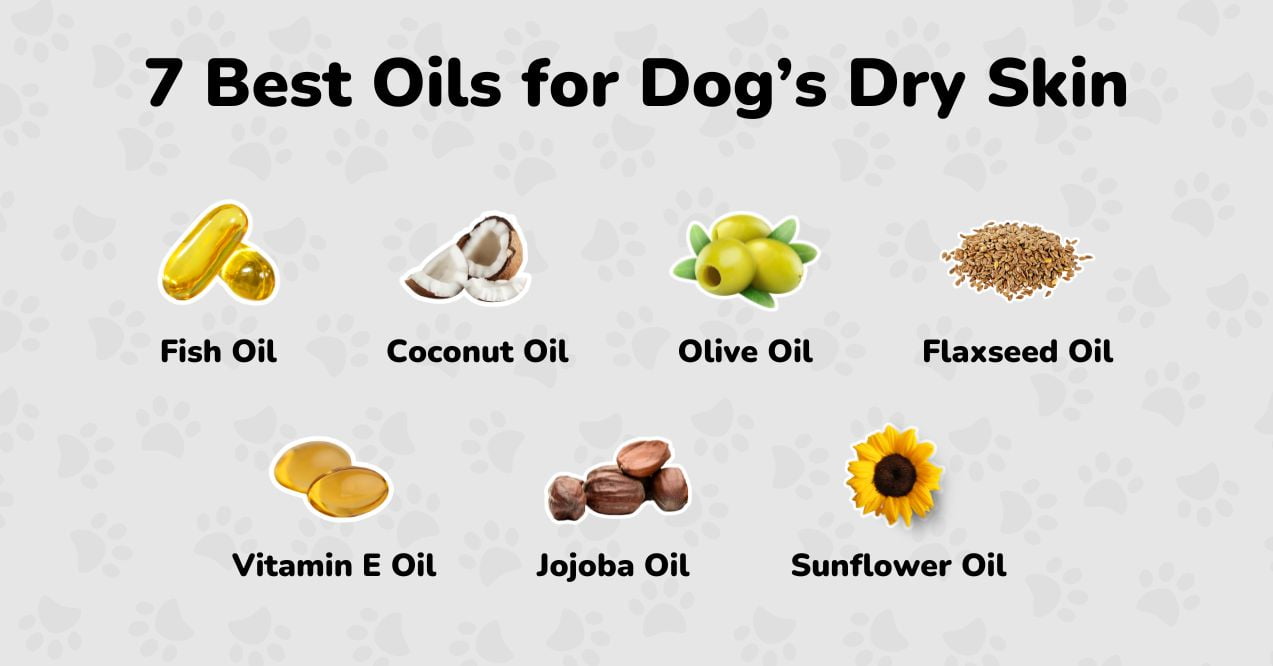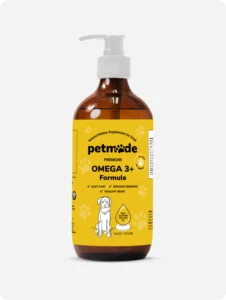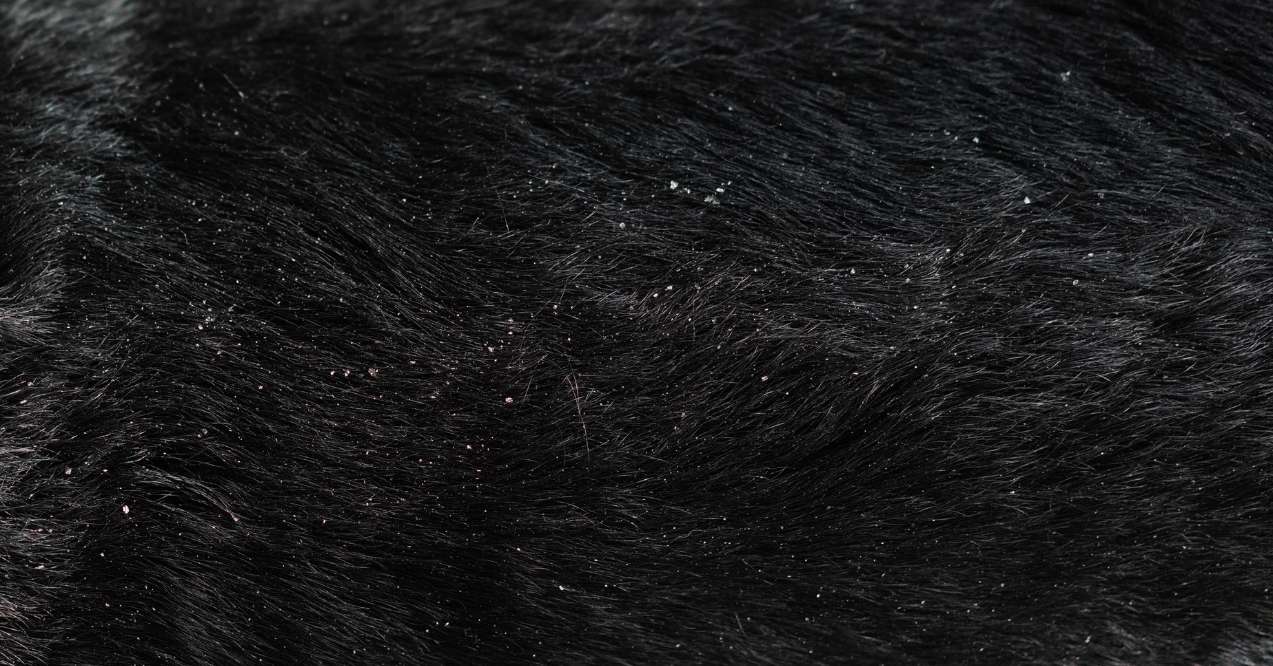Best Oil for Dog’s Dry Skin – 7 Solutions That Work
Is your furry friend constantly scratching, leading you to search for the best oil for dogs dry skin? If their coat lacks that healthy shine, you’re not alone. Many dog owners face the challenge of managing dry skin in their canine companions. Fortunately, there’s a simple solution that can make a world of difference. In this guide, we’ll explore seven effective oils that can help soothe your dog’s itchy, flaky skin and restore their coat to its former glory.
From fish oil to sunflower oil, each option offers unique benefits for your pup’s skin health. We’ll dive into the specifics of each oil, sharing expert application techniques and insider tips to maximize their effectiveness. Whether you’re dealing with seasonal dryness or ongoing skin issues, you’ll find valuable insights to help your four-legged friend feel more comfortable in their own skin.

Top 7 Oils for Dry Skin on Dogs
So, what oils are good for dogs skin? Each oil brings its own set of benefits and considerations. Let’s explore the top seven oils that can help alleviate your dog’s dry skin issues:
1. Fish Oil
Fish oil is a powerhouse when it comes to promoting skin health in dogs. Fish oil for dogs dry skin is rich in omega-3 fatty acids, particularly EPA (eicosapentaenoic acid) and DHA (docosahexaenoic acid), fish oil offers numerous benefits for canine skin:
- Reduces inflammation associated with dry, itchy skin
- Supports a healthy, shiny coat
- May help manage seasonal allergies that affect the skin
- Can aid in managing autoimmune skin conditions
When choosing fish oil for your dog, look for products with high EPA and DHA content. Wild-caught, cold-water fish sources are often preferred for their purity and potency.
Proper dosage:
- Start with 20 mg of EPA/DHA per pound of body weight
- Gradually increase if needed, under veterinary guidance
- Divide the daily dose into two servings for better absorption
2. Coconut Oil

Coconut oil for dogs dry skin is a versatile option. Its unique properties make it beneficial both when applied topically and when ingested:
- Contains lauric acid, which has antimicrobial properties
- Moisturizes and soothes dry, itchy skin
- May help manage yeast overgrowth on the skin
When using coconut oil for dry dog skin, consider these tips:
- For topical use, apply a thin layer to affected areas
- For oral administration, start with 1/4 teaspoon per 10 pounds of body weight daily
- Use virgin, cold-pressed coconut oil for maximum benefits
Try this DIY coconut oil treatment for localized dry spots:
- Mix 2 tablespoons coconut oil with 1 drop lavender essential oil
- Apply gently to affected areas
- Leave on for 5-10 minutes before rinsing
For easier application and less greasiness, consider using fractionated coconut oil, which remains liquid at room temperature.
3. Olive Oil
Olive oil is another excellent option for managing dry skin in dogs. Its anti-inflammatory properties can help soothe itchy, irritated skin:
- Rich in antioxidants that support skin health
- Contains oleic acid, which helps maintain skin moisture
- May help remove tar or stubborn substances from your dog’s coat
When using olive oil for your dog’s skin:
- Choose extra virgin olive oil for the highest quality
- For topical use, apply a small amount to dry areas
- For oral use, start with 1/2 teaspoon per 20 pounds of body weight daily
Try this olive oil blend for maximum effect:
- Mix 2 tablespoons olive oil with 1 tablespoon honey
- Apply to dry patches and leave on for 5-10 minutes before rinsing
Olive oil can be particularly beneficial for senior dogs, helping to manage age-related skin changes.
4. Flaxseed Oil

Flaxseed oil is a plant-based alternative rich in omega-3 fatty acids, particularly alpha-linolenic acid (ALA):
- Supports skin health and coat shine
- May help reduce inflammation associated with dry skin
- Contains lignans, which have antioxidant properties
When using flaxseed oil for your dog:
- Store in a cool, dark place to maintain freshness
- Start with 1 teaspoon per 20 pounds of body weight daily
- Introduce gradually to avoid potential digestive issues
For a complete approach to skin health, consider combining flaxseed oil with other plant-based proteins to ensure a full amino acid profile.
5. Vitamin E Oil
Vitamin E oil is known for its antioxidant properties and can be a valuable addition to your dog’s skin care routine:
- Helps protect skin cells from damage
- Can improve skin elasticity and moisture retention
- Works synergistically with other oils for enhanced benefits
When using vitamin E oil:
- For topical use, apply a small amount directly to dry areas
- For oral use, consult your veterinarian for proper dosage
- Can be combined with other carrier oils for easier application
Be aware that while rare, some dogs may be sensitive to vitamin E. Always do a patch test before full application.
6. Jojoba Oil

Jojoba oil is unique among the oils on this list, as it’s technically a liquid wax ester:
- Closely mimics the natural sebum of a dog’s skin
- Helps balance oil production in the skin
- Non-greasy and easily absorbed
When using jojoba oil for your dog’s dry skin:
- Apply a small amount directly to affected areas
- Can be blended with other carrier oils (1:1 ratio)
- Particularly effective for managing seborrhea in dogs
7. Sunflower Oil
Sunflower oil is rich in linoleic acid, an omega-6 fatty acid that’s crucial for skin health:
- Helps improve the skin’s barrier function
- Can increase skin hydration
- May be beneficial in managing atopic dermatitis
When using sunflower oil for your dog:
- For oral use, start with 1 teaspoon per 20 pounds of body weight daily
- Can be drizzled over food or mixed into treats
- Ensure a proper balance with omega-3 fatty acids in the diet
Expert Application Techniques
To maximize the benefits of oil for dogs dry skin:
- Massage oils gently into the skin to promote absorption
- Apply oils after bathing when the skin is slightly damp
- For severe dry skin, consider creating a custom oil blend: 2 parts coconut oil, 1 part olive oil, 1 part vitamin E oil
- Apply oils 2-3 times a week for maintenance, or daily for severe cases
Learning how to treat dry skin on dogs effectively often involves more than just selecting the right oil. These application techniques can significantly enhance the oils’ benefits, ensuring your furry friend gets the most out of their skin care routine.
Conclusion
Oil for dogs’ dry skin can be a simple yet highly effective solution for managing itchiness, flakiness, and discomfort in your furry friend. From fish oil to coconut oil, each option offers unique benefits that promote healthier skin and a shinier coat. With proper application techniques, these oils can help restore moisture, reduce inflammation, and support your dog’s overall skin health. By incorporating the right oil into your dog’s routine, you can ensure they remain comfortable and happy, while also addressing any underlying skin issues that may arise.
Many human-grade oils are safe for dogs when used properly. However, always choose high-quality, pure oils without additives. Some oils, like tea tree oil, can be toxic to dogs. It’s best to consult with your veterinarian before using any new oil on your dog’s skin.
Watch for signs like increased itching, redness, swelling, or hives after applying an oil. Some dogs may show digestive upset if the oil is ingested. Always do a patch test on a small area first. If you notice any adverse reactions, discontinue use immediately and consult your veterinarian.
Yes, it’s possible to over-supplement. Too much oil can lead to digestive issues, weight gain, or an imbalance in nutrients. Always follow recommended dosages and consult your vet. Start with small amounts and gradually increase. Monitor your dog’s response and adjust accordingly to avoid over-supplementation.
Advertisement. This site offers health, wellness, fitness and nutritional information and is designed for educational purposes only. You should not rely on this information as a substitute for, nor does it replace, professional medical advice, diagnosis, or treatment. If you have any concerns or questions about your health, you should always consult with a physician or other health-care professional. Do not disregard, avoid or delay obtaining medical or health related advice from your health-care professional because of something you may have read on this site. The use of any information provided on this site is solely at your own risk.


















